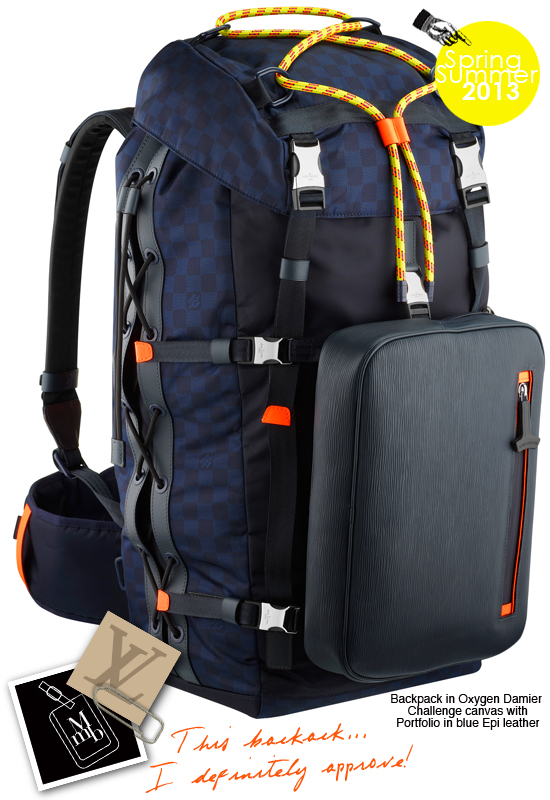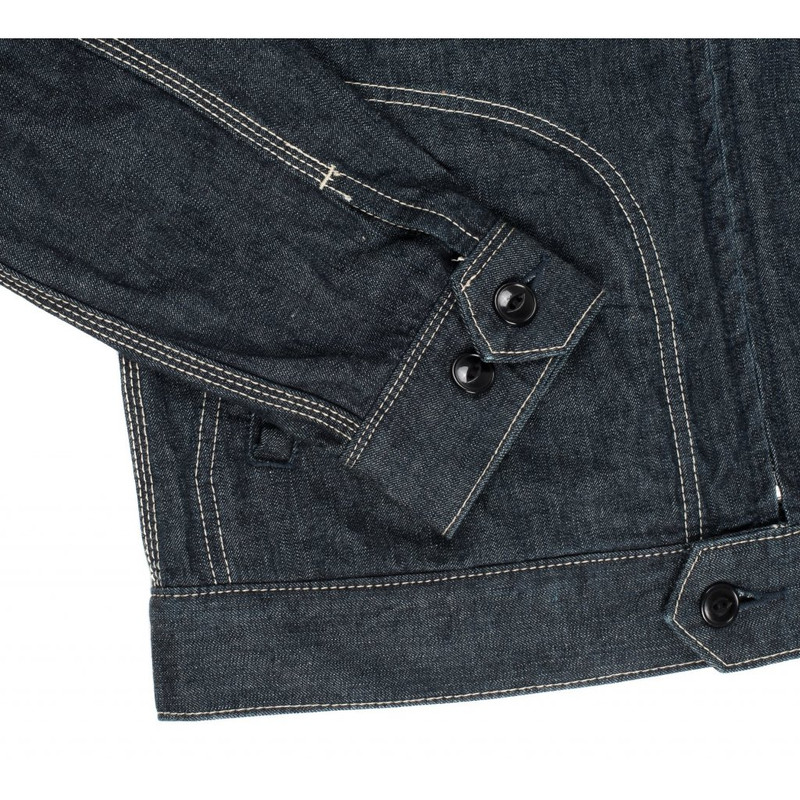We know you love IH, but where do you think we can improve?
-
I think about them all the time too, just never had one stick out while I was wearing it, or get super itchy in the summer. Maybe I've blocked it out of my mind cause I love the fabric. I get super meticulous when washing and folding because I hate it when the tags stick up, I'm always making sure they lay flat when folded or hanging…
14+ is a respectable collection.

I have some tfh thc-00w tees too, but I prefer the IH fabric by a mile
-
A second, inner rivet or button on the wrist of all outerwear, even denim jackets. I may be abnormal, but I like the wrist pretty tight on mine (and I recognize that, if I am, it won't happen!)
-
@tmg:
^ that's a good point actually since many work shirts are worn loose rather than tucked, and could also be applied to the UHF's, both western and work cuts, since they're probably never tucked due to the thickness
I really hope this never happens (no offense intended). I already think that most of my westerns are too wide at the waist. In some cases it really looks odd from the side (like a pregnant woman wearing pajamas).
This looks like another case where you really can't please everybody. Too many different body types.
Enviado desde mi iPhone utilizando Tapatalk
-
Where exactly?
I think this was in response to my ask. Similar to below on the first zip. Traditional denim jackets obviously don't have the flap, so the 2nd rivet could be a little closer to the main one. Not sure if this would mean they'd need to be lower/closer to the denim, in which case this might be unrealistic (if you have to use a new rivet type).
-
I think two riveted buttons would be very cumbersome especially on smaller sizes.
Sent from my iPhone using Tapatalk
-
Two points…
1. In your online shop I'd like to see which retailer has the item in stock, incl. a link to their online sales channel. Think platform economy. Everybody wins. Customers are more likely to get what they want in the size they need, retailers sell more, you sell more, faster movement of goods, ...
2. No more Discounts ("Sales"). It's a sweet poison that eventually leads to the dark side of the force. I understand the short term benefit for you and your customers, but long-term it just costs you money, customer loyalty and brand reputation.
-
- Almost impossible to do at anything like a sensible cost. We'd have to have real time links (or a batch update once per day or so) into their systems. We have enough trouble keeping our own stock levels accurate.
2a) We love doing a 10% or so off sale from time to time, it's a great way to create some buzz and we gain lots and lots of first time customers (who usually become repeats). Do we need to do it, no, but it's quite fun.
2b) We make a lot of mistakes - all retailers do. We order too much of a product, we think something will be super popular and its not. The only way we can move it is to discount it. I know that everything we make will eventually sell, but we have 3 restraints - i) Physical space ii) Capital tied up in stock iii) Website real-estate - we simple do not want a website with 100's of things that only have 1 or 2 items. There is no better way of pissing customers off than have them click on dozens of products to find we only have 1 x XS and 1 x XXXL left.If someone has a better solution to 2b, please let us know. We'll be all over it like a rash…
-
-
You provide the platform. Retailers pay for the integration. Prices for these solutions drop monthly. Jump on it when feasible, but early.
-
Brands like Louis Vuitton, Hermes, Apple, IKEA, etc. face the same challenge, but decided to deal with it differently. Not because they enjoy burning money. I think to make it work you have to know your customers extremely well and your fear of figuratively burning your brand has to exceed your fear of literally burning surplus production.
Just food for thoughts.
-
-
Brands like Louis Vuitton, Hermes, Apple, IKEA, etc. face the same challenge, but decided to deal with it differently.
Man, are you oblivious of the size difference between a brand like Iron Heart and the companies you mentioned?
 I'm sure if IH had such a huge customer base then they'd approach discounts differently as well, but you're comparing a tiny fish to that of a whale.
I'm sure if IH had such a huge customer base then they'd approach discounts differently as well, but you're comparing a tiny fish to that of a whale. -
Thanks, I appreciate the thought and input.
I think we do know our customers extremely well. This forum helps us do that. But we still screw up. I think one of the most interesting pants we have made in the last few years are the IH-816DD, I thought these would sell brilliantly. They are on special and still we have 53 pairs left.
Perhaps the brands you mention are extremely profitable and can afford to destroy stock, we are not and we can't. Perhaps they want world dominance want to make hyper-sales and hyper profits, we don't. Apart from the moral objections I have about destroying perfectly good product, I'd far rather offer the product at a price that allows us to give some people who otherwise may not buy them a bargain price and at the same time bring some money into our coffers. If, say we get USD100 per pair for those IH-816DD that's $5,300 that we don't have to find from somewhere else, like raising prices on other products..
-
You have to remember that high cost fashion brands such as LV or Hermes make such a small runs of products or have very long lasting traditional product runs there is very little need to manage stock by discounts. I remember LV made SUPER awesome bag back (and f***ing) expensive around $14,600. Is sold out immediately. Seriously in hours or in couple days or so.

- Brands like Louis Vuitton, Hermes, Apple, IKEA, etc. face the same challenge, but decided to deal with it differently. Not because they enjoy burning money. I think to make it work you have to know your customers extremely well and your fear of figuratively burning your brand has to exceed your fear of literally burning surplus production.
Just food for thoughts.
-
IKEA goes on sale… At least in Australia.
Apple may not go on sale but their retailers do, not often but it happens (twice a year).
Louis Vuitton and Hermes are only sold in their boutiques or concessions, they have full control of their product... Iron Heart have independant stockists all over the world, they can't stop them from going on sale even if Iron Heart decided never to.
Also, IH isn't a luxury brand, it is a brand intended for everyone but not everyone can afford it. Sales give customers a chance to buy something they normally couldn't.
** Apple's revenue $230 billion, IKEA 35 billion, Louis Vuitton 10 billion, Hermes 1.35 billion **
**** Levi Strauss & Co revenue $4.5 billion… And they go on sale **** -
-
You provide the platform. Retailers pay for the integration. Prices for these solutions drop monthly. Jump on it when feasible, but early.
-
Brands like Louis Vuitton, Hermes, Apple, IKEA, etc. face the same challenge, but decided to deal with it differently. Not because they enjoy burning money. I think to make it work you have to know your customers extremely well and your fear of figuratively burning your brand has to exceed your fear of literally burning surplus production.
Just food for thoughts.
-
Such platforms are not cheap. This is a niche market, retailers do not make big profits.
The companies which do what you have suggested are large with high turnovers, their retailers are also large. -
You cannot seriously compare Iron Heart to any of those companies, or even the markets they operate in.
Having sales are a part of any retail market. In my opinion they create more positivity than negativity to a brand and its customers.
Poor customer service and limited or no interaction to customer base is what hurts brands more than anything else. -
-
This is a niche market, retailers do not make big profits.
Actually nor do we. Nor does anyone in our supply to retail chain.
The margins we make out of retailers is a non-sustainable business model. Part of the reason we have a retailer network (and they know this because I tell them), is that they drive customers to Ironheart.co.uk. None of our retailers can afford to or has the space to carry more than about 15% of our range.
Customer goes into retailer, sees Iron Heart, falls in love, goes home, Googles Iron Heart and see all the other goodies that we sell (our retailers know this happens, because we tell them it will), we then sell a product at a higher margin than we would selling to a retailer, which allows us to continue what we do without increasing prices.
-
Poor customer service and limited or no interaction to customer base is what hurts brands more than anything else.
^yup.
Great customer service and remarkable, nay, unparalleled levels of interaction with the customer base are two of the unique qualities of IHUK.
Also it's not just new customers with limited buying power who appreciate the Specials or an odd 10% off. The regular customers who use a solid proportion of their income buying often at standard prices also really appreciate getting the opportunity to buy items at a reduced price now and again. So I fail to see how that tarnishes the brand.
-
Actually nor do we. Nor does anyone in our supply to retail chain.
The margins we make out of retailers is a non-sustainable business model. Part of the reason we have a retailer network (and they know this because I tell them), is that they drive customers to Ironheart.co.uk. None of our retailers can afford to or has the space to carry more than about 15% of our range.
Customer goes into retailer, sees Iron Heart, falls in love, goes home, Googles Iron Heart and see all the other goodies that we sell (our retailers know this happens, because we tell them it will), we then sell a product at a higher margin than we would selling to a retailer, which allows us to continue what we do without increasing prices.
ha, that's exactly what happened to me. I bought my first Iron Heart clothing in Rivet & Hide several months ago and it is already my favourite brand!
^yup.
Great customer service and remarkable, nay, unparalleled levels of interaction with the customer base are two of the unique qualities of IHUK.
I have bought clothing online many times, and I can honestly say I had the best customer service when I made my first order with IHUK.
I also like how on the forums you can talk freely about other brands that are operating in the same niche market.
-
The regular customers who use a solid proportion of their income buying often at standard prices also really appreciate getting the opportunity to buy items at a reduced price now and again.
Sounds like the voice of personal experience…




 . Budget=exploded
. Budget=exploded 